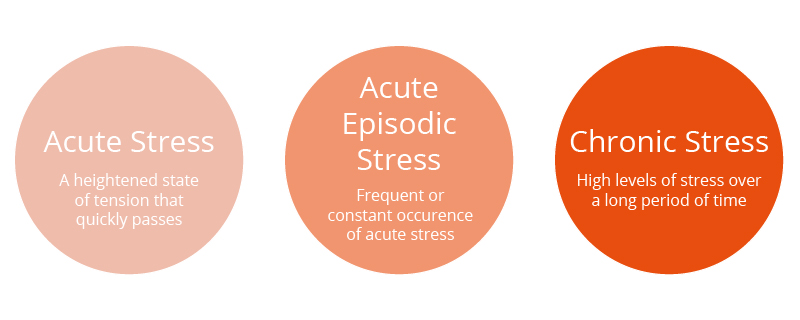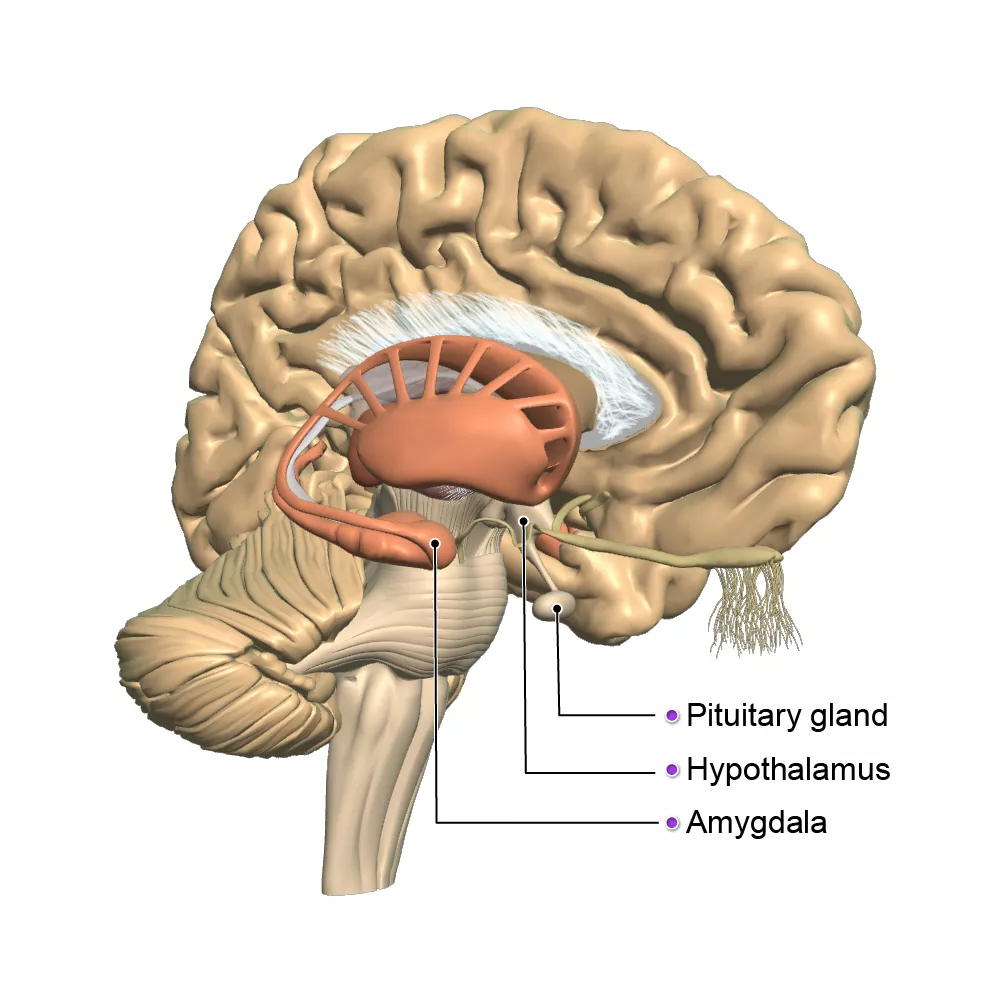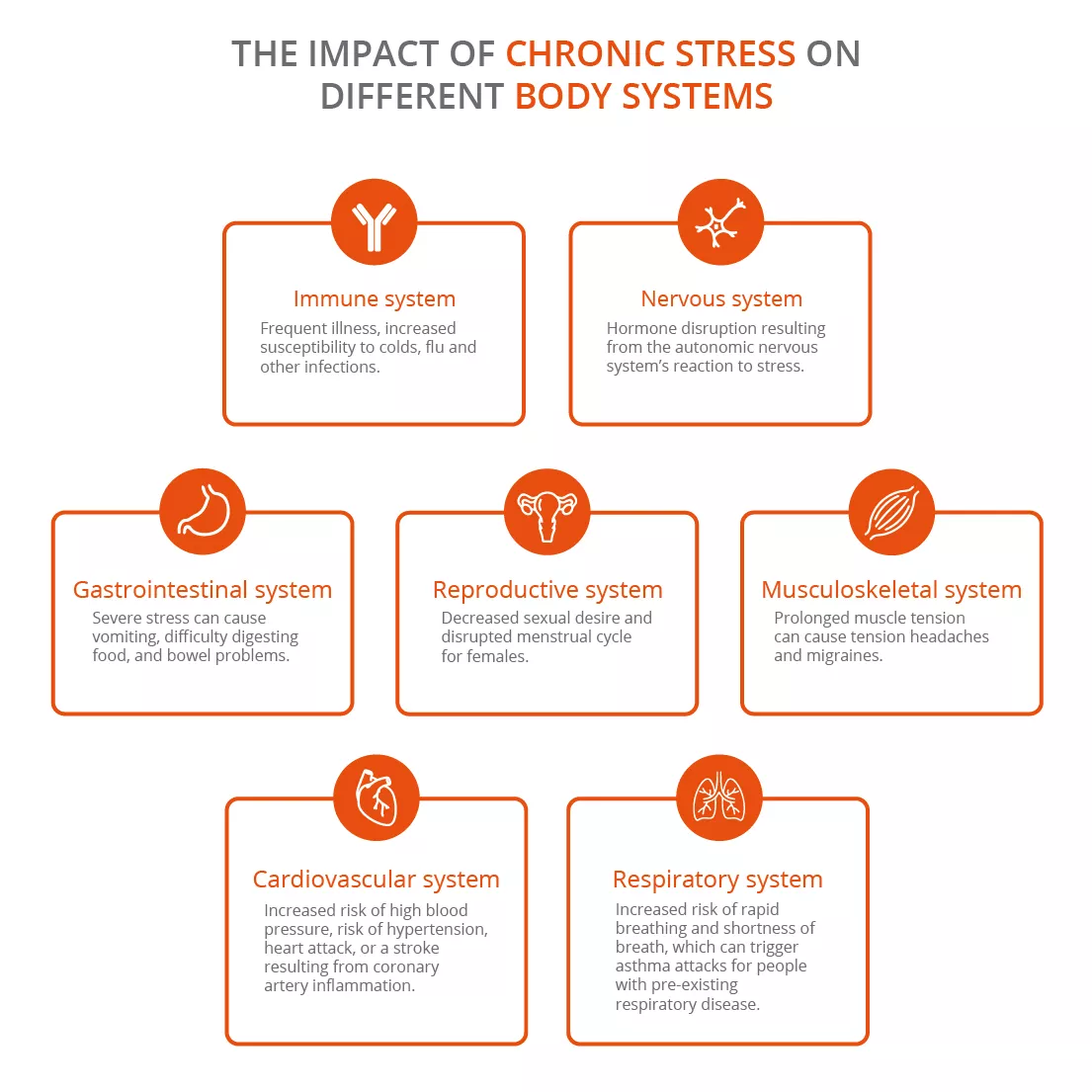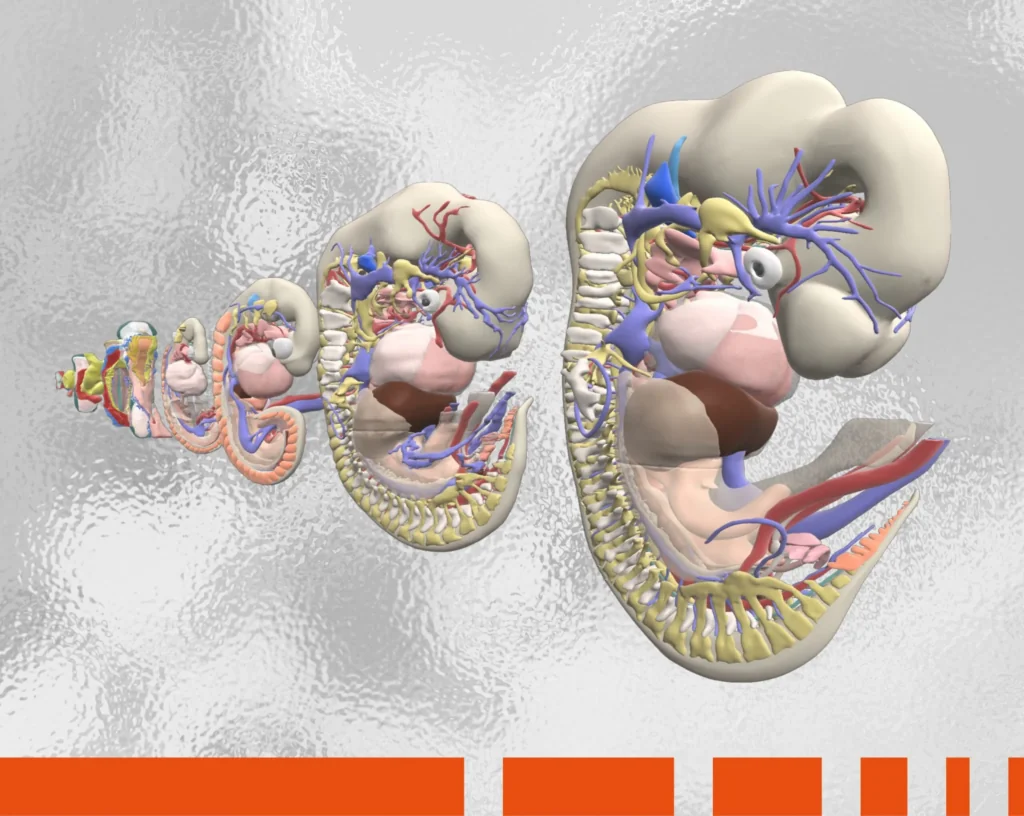Are you feeling overwhelmed with stress, perhaps from studying this exam season? Have you ever wondered what effect this stress has on your mind and body? What are the different levels of stress? And finally, how can we relieve stress and make it easier to manage? Let’s explore what stress actually is, how it affects our body – and more importantly, ways to cope.
To begin, not all stress is harmful. We need this fight-or-flight response so we can react to stressful situations. Although nowadays, rather than being hunted, our stress originates from more modern situations, such as organizing a wedding, public speaking – and of course, exams! Most people go through short periods of intense stress in their lives, and it can be good for you as it keeps you focused, giving you the motivation to power through and reach your goal.
However, constant and chronic stress can negatively impact your health, depending on the length and severity of stress you are feeling. It can be broken down into three categories:

Acute stress
Acute stress can be viewed positively. It is a heightened state of tension that quickly passes, such as when giving a speech or handing in a project. This type of stress is funneled into a tight focus for a short period. When it is all over and our body slowly returns to normal, we feel a sense of gratitude and relief that can also lead to a feeling of achievement. This is the same feeling we get when taking part in “daredevil” activities such as skydiving or rollercoaster rides.
Episodic acute stress
When stressful situations happen too frequently, or if you’re constantly anxious and worried about things, it’s called episodic stress. It’s common for emergency service professionals, who frequently encounter high-stress situations. It can lead to feelings of hopelessness, irritability, and lack of motivation. Physically, it can manifest in trouble sleeping, low sex drive or frequent headaches.
Chronic stress
High levels of stress over a long period of time can result in chronic stress, which can severely impact your health and may lead to:
- Anxiety
- Depression
- High blood pressure
- Cardiovascular disease
- A weakened immune system
- Muscle pain and digestive issues
If you do feel overwhelmed and unable to cope, make an appointment with your doctor to help determine if there is another issue at hand such as an anxiety disorder. They may refer you to a mental health specialist who can recommend services and provide advice to help you manage your stress levels.
What happens inside our bodies when we are stressed?
You know instinctively to jump out of the way when a car is hurtling toward you. This comes from important hormones that fire up at the right moment to keep you safe from harm. At the center is the autonomic nervous system, which acts as a messenger between your brain and the rest of your body. It’s comprised of two parts, the sympathetic nervous system that keeps your body on high alert when dealing with stress, and afterward, the parasympathetic nervous system that helps you calm down.
First, the amygdala (the part of your brain that stimulates a sense of fear) shoots a message to the boss of the autonomic nervous system, the hypothalamus. This then sends signals to the adrenal glands to pump adrenaline (also known as epinephrine) into your bloodstream. This surge of energy prepares you for that flight-or-fight response.

The adrenal glands also produce noradrenaline (also known as norepinephrine), which create the immediate sensations we feel when stressed. Our heart beats faster, sending more blood to the muscles so we can make a quick getaway. We breathe quicker, which opens small airways in our lungs allowing more oxygen to our brain, so we become more alert. We suddenly become intensely aware of all these involuntary senses the autonomic system is responsible for.
However, if you feel yourself getting even more stressed it’s because a second stress responder reacts: the hypothalamic-pituitary-adrenal axis system (HPA). The HPA consists of the hypothalamus, the pituitary gland and the adrenal glands. When the brain senses danger, the hypothalamus releases corticotropin-releasing hormone (CRH) to the pituitary gland, which in turn releases adrenocorticotropic hormone (ACTH). This hormone then tells the adrenal glands to produce a hormone called cortisol.
Cortisol keeps your body on high alert once a state of stress has been triggered. It functions by:
- Boosting the amount of glucose in your bloodstream
- Increasing the brain’s use of glucose
- Improving the availability of substances that repair tissues
- Altering immune system response
- Limiting functions that are non-essential or harmful in a life-threatening situation
- Suppressing the reproductive system and growth process
- Communicating with the part of the brain that controls fear, motivation and mood
Once the threat has passed, cortisol levels fall and our stress levels return to normal, aided by the autonomic nervous system.
What happens when stress becomes chronic?
The changes in our body when we are stressed are usually temporary, but chronic stress can put your health at risk by impacting the following:
- Cardiovascular system – The consistent increase of blood pumped around our body can lead to inflammation in the circulatory system, particularly in the arteries supplying the heart (coronary arteries), which can result in high blood pressure, risk of hypertension, heart attack or stroke.
- Respiratory system – Being stressed causes rapid breathing and shortness of breath, which can trigger a panic attack or asthma attacks for people with pre-existing respiratory diseases such as asthma and COPD.
- Musculoskeletal system – Your muscles tense up when stressed as a barrier against injury or pain, but if they stay taut for too long it can impact other areas of your body. Tension headaches and migraines are common. This can start in the shoulders and neck, for example when you are hunched over studying for long periods. Tension headaches also result from changes in the blood vessels around your brain due to stress hormones.
- Nervous system – As detailed earlier, the autonomic nervous system controls the reaction to stress by releasing three key hormones: epinephrine, norepinephrine and cortisol. The prolonged effect of our body reacting to these stress hormones disrupts almost all our bodily systems.
- Gastrointestinal system – Those butterflies you feel inside your stomach? That’s your gut’s way of telling your brain it is in pain because of stress. Your gut is like your second brain, it can influence mood and the ability to think and affect emotions. Furthermore, stress can also result in either overeating or not eating enough. Severe stress can cause vomiting or difficulty digesting food, leaving you feeling bloated, gassy or with diarrhea or constipation.
- Immune system – When you are under stress your immune system is more likely to be impaired. As a result, you can fall ill more frequently and be more susceptible to colds, flu and other infections.
- Reproductive system – Stress influences hormonal balance, which can result in a decrease in sexual desire and can negatively impact the reproductive and menstrual cycles.

Ways to cope with stress
Stress is always going to be a part of life, but if you can handle it effectively it doesn’t have to end up so damaging:
- See if you can understand the root cause of your stress and avoid those situations or approach them in a new way.
- Try not to overthink or think too negatively about a situation. Prioritize your goals and don’t be so hard on yourself if you don’t get around to all of them.
- Spend time with family and friends. Talking with a close network of people relieves the pressure and burden you feel, and can help you explore new solutions to a problem.
- Cut down on smoking and drinking as they can make you more anxious.
- Eat a healthy, balanced diet. And foods like dark chocolate (you can have a vice) and those rich in vitamin C like oranges, peppers and strawberries may lower your stress hormones.
- Regular physical activities keep you active and alert, and the release of endorphins makes you feel more positive.
- Practice meditation techniques like deep breathing or yoga, which helps to quiet the mind and allows you to refocus.
- Get a good night’s sleep. After all that healthy eating, exercising and socializing you are bound to feel exhausted, so hunker down and be ready to wake fresh-faced.
As referenced earlier, seek medical advice if you feel your stress is becoming chronic. You can always be prescribed services to help you cope better.

